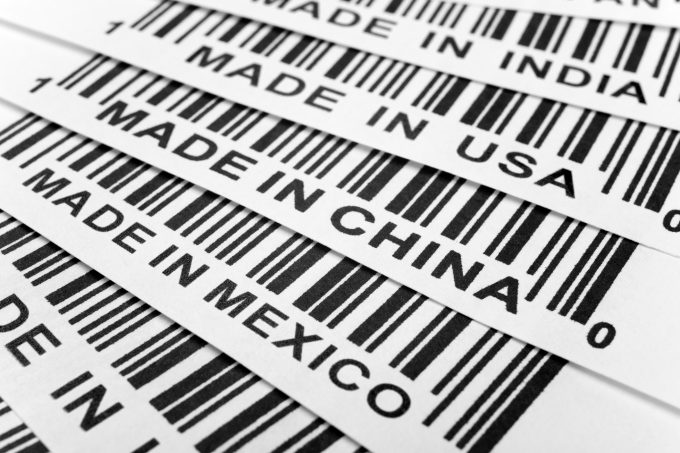Trump second term would pose a 'destructive risk to the container market'
The prospect of Donald Trump winning the forthcoming US presidential election ought to put the ...
AMZN: MULTI-BILLION LONG-TERM MEXICO INVESTMENTKNIN: ANOTHER LOW PG: STABLE YIELDXOM: GO GREEN NOWKNIN: BOUNCING OFF NEW LOWS HON: BREAK-UP PRESSURECHRW: UPGRADESZIM: LAGGARDFWRD: LEADINGMAERSK: OPPORTUNISTIC UPGRADETSLA: GETTING OUTDSV: DOWN BELOW KEY LEVELLINE: DOWN TO ALL-TIME LOWS AMZN: DEI HURDLESAAPL: DEI RECOMMENDATIONAAPL: INNOVATION
AMZN: MULTI-BILLION LONG-TERM MEXICO INVESTMENTKNIN: ANOTHER LOW PG: STABLE YIELDXOM: GO GREEN NOWKNIN: BOUNCING OFF NEW LOWS HON: BREAK-UP PRESSURECHRW: UPGRADESZIM: LAGGARDFWRD: LEADINGMAERSK: OPPORTUNISTIC UPGRADETSLA: GETTING OUTDSV: DOWN BELOW KEY LEVELLINE: DOWN TO ALL-TIME LOWS AMZN: DEI HURDLESAAPL: DEI RECOMMENDATIONAAPL: INNOVATION

Despite all the recent protectionist talk, global trade facilitation is improving.
A World Trade Organisation (WTO) report published yesterday shows the lowest monthly average of new trade restrictions since 2008.
Between October and May, there were just 74 new trade-restrictive measures, approximately 11 a month, while the same period last year saw a monthly average of 15.
It wasn’t all rosy though. With the decline in trade-restrictive measures came a drop in trade-facilitating measures, down to an average 11 a month, compared with 18 in the same period in 2016.
But WTO director-general Robert Azevedo welcomed the “encouraging decrease” in the rate of new trade-restrictive measures and urged members to continue to show moderation.

WTO: Trade restrictive measures
Furthermore, he noted, the trade coverage of import-facilitating measures amounted to $183bn, compared with the $49bn impact of trade-restrictive measures.
“The larger trade coverage of import-facilitating measures is also a positive development and a clear sign that WTO members are working to improve the global trading environment,” said Mr Azevedo. “I urge WTO members to continue showing moderation and restraint in their use of trade restrictions, despite the persistent uncertainty facing the global economy.”
However, deputy chief executive of the Freight Transport Association James Hookham said that while he also welcomed the news, he cautioned against too much optimism.
“With changes in government, this could be the calm before the storm, as the period under review is benefiting from past administrations,” said Mr Hookham.
But he added: “That said, if it is showing improving trade away from the US and European Union, it augurs well for Brexit, as the UK will be looking for trade away from those markets.”
A spokesperson from the International Road Transport Union (IRU) welcomed the decrease in new restrictions, but said the number of them remained too high and called for greater efforts to be made.
“In particular, countries need to continue reducing non-tariff trade barriers, such as customs restrictions and unnecessary bureaucracy,” said the spokesperson. “Any new measure to simplify and boost trade is to be welcomed, but the lower total number of new measures is a little worrying.”
The spokesperson said the IRU did, however, remain hopeful and was “very” encouraged by the number of new countries joining international conventions to facilitate trade.
Comment on this article